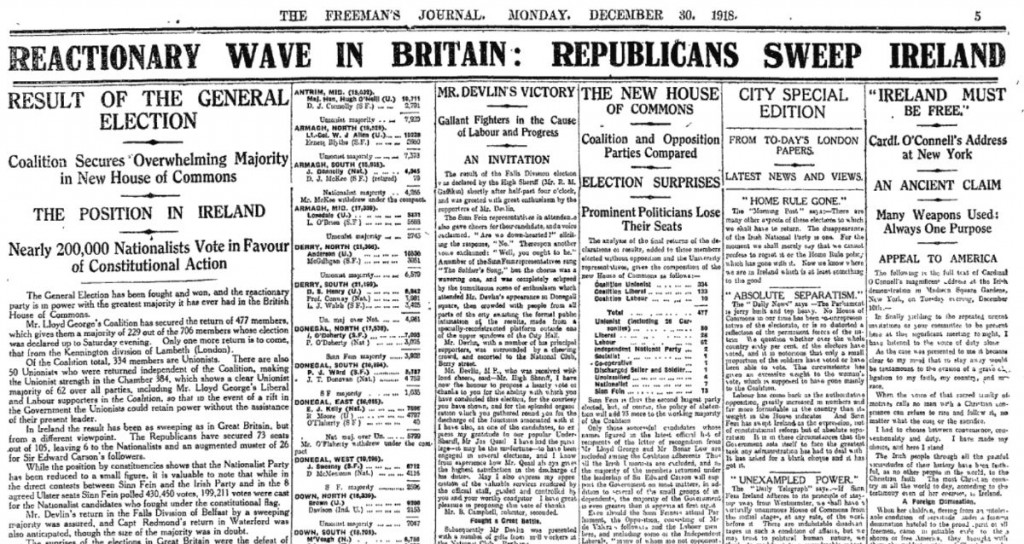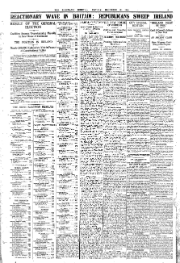 Freemans Journal 1763-1924, Monday, December 30, 1918
Freemans Journal 1763-1924, Monday, December 30, 1918
On this day in 1918 the results of the General Election in Ireland gave Sinn Fein a landslide victory which would ultimately lead to the establishment of Dail Eireann the following month.
Support for Sinn Fein had grown steadily after the 1916 Rising and the introduction of Conscription in April 1918 as the British government looked to recruit more soldiers for the war effort. Even before polling day the push towards Sinn Fein was evident. On the closing day for nominations twenty-five Sinn Féin candidates were immediately elected, as no one had been nominated to oppose them. In addition, more than forty MPs decided not to stand for re-election. In Munster Sinn Fein took seventeen seats and who included The winners included such notables as Terence MacSwiney, Michael Collins, and Diarmuid Lynch in Cork, Austin Stack, Fionán Lynch, and Piaras Beaslaí in Kerry, along with Con Collins in Limerick. Only in the north did Sinn Fein face stiff opposition from unionists. There the Unionists won twenty-two of Ulster’s thirty-seven seats, with Sinn Féin taking ten, and the Nationalist Party the other five. In Leinster, Sinn Féin won twenty-six of the twenty-seven seats, losing only in Rathmines, Dublin, to Sir Maurice Dockrell, the Unionist candidate. Among the winners for Sinn Féin was winners Countess Markievicz, who by winning her seat in Dublin, became the first woman ever elected to the British Parliament. Reacting to the news of the victory of Sinn Fein, Sir Edward Carson stated that ‘as regards Ireland, the elections have cleared the air. The issue is between an independent Republic or government under the parliament of the United Kingdom. Every other alternative has proved to be a sham. As for Ulster, our simple demand is to be governed and treated as Great Britain is, and to share in the benefit of all of her laws’.
Download Freemans Journal 30.December.1918

 Freemans Journal 1763-1924, Monday, December 30, 1918
Freemans Journal 1763-1924, Monday, December 30, 1918
